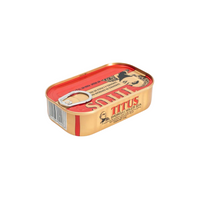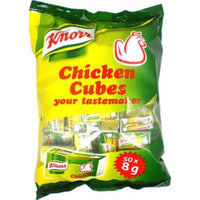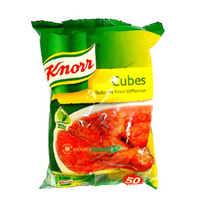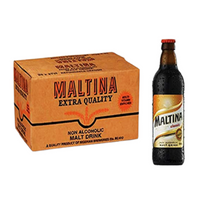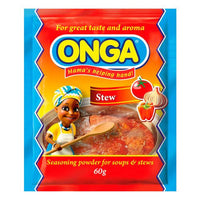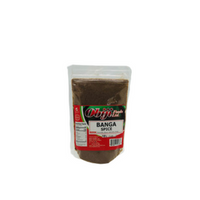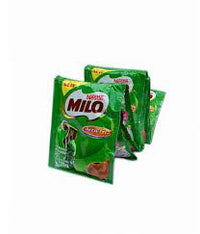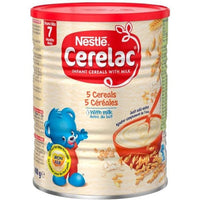Africa is a continent of diverse cultures, languages, and cuisines. Each region has its own distinctive flavors and ingredients that reflect its history, geography, and traditions. One of the ways to experience the richness and variety of African food is through its condiments. Condiments are sauces, spices, or seasonings that are added to food to enhance its taste, texture, or appearance. They can range from mild to spicy, sweet to sour, creamy to crunchy, and everything in between.
If you are an African living in the US or Canada, you might miss the familiar tastes of home and want to recreate some of your favorite dishes. Or if you are a food lover who enjoys exploring new cuisines, you might be curious about the different types of African condiments and how to use them in your cooking. Either way, this blog post is for you. I will introduce you to some of the most popular and authentic African condiments that you can find in the US and Canada, especially those that originate from Western Africa. I will also give you some tips on where to buy them, how to store them, and how to pair them with different foods.
Let's get started!
Shito
Shito is a spicy sauce made from dried fish, shrimp, chili peppers, tomatoes, garlic, ginger, and oil. It is a staple condiment in Ghana, where it is used to flavor rice, yam, plantain, kenkey, banku, and other dishes. Shito has a dark brown color and a thick consistency. It can be very hot, so use it sparingly if you are not used to spicy food. Shito can be bought in African grocery stores, online shops, or you can make your own at home. To store shito, keep it in an airtight container in the refrigerator for up to a month.
Suya Spice
Suya spice is a dry rub made from roasted peanuts, chili peppers, paprika, onion powder, garlic powder, ginger, salt, and other spices. It is used to season grilled meat, especially beef, chicken, and lamb. Suya spice is a signature condiment in Nigeria, where it is sold by street vendors who grill meat on skewers over charcoal. Suya spice has a nutty, smoky, and spicy flavor that adds a lot of depth and aroma to meat. Suya spice can be found in African grocery stores, online shops, or you can make your own at home. To store suya spice, keep it in an airtight container in a cool and dry place for up to six months.
Egusi
Egusi is a type of melon seed that is ground into a powder and used to thicken soups and stews. It is a common ingredient in many West African countries, such as Nigeria, Ghana, Mali, Senegal, and Cameroon. Egusi has a mild and nutty flavor that adds body and richness to dishes. Egusi is often combined with other ingredients, such as palm oil, tomatoes, onions, spinach, okra, meat, or fish, to make delicious and hearty soups and stews. Egusi can be purchased in African grocery stores, online shops, or you can grind your own at home. To store egusi, keep it in an airtight container in the refrigerator or freezer for up to a year.
Palm oil
A red-orange oil extracted from the fruit of the oil palm tree. It is a common cooking oil in many West and Central African countries, such as Nigeria, Ghana, Cameroon, and Congo. Palm oil has a distinctive flavor and color that adds richness and depth to dishes. It is often used to fry plantains, yams, or fish, or to make soups and stews.
Peanut butter
A paste made from roasted and ground peanuts. It is a popular ingredient in many African cuisines, especially in Senegal, Mali, Gambia, and Sudan. Peanut butter is used to make sauces, soups, dips, and desserts. It adds a nutty, creamy, and sweet flavor to dishes. You can use any kind of peanut butter, but natural and unsweetened ones are preferred.
Iru or Dawadawa
This is a condiment made from the fermented seeds of the African locust bean tree (Parkia biglobosa), which grows in the savanna regions of West Africa. It is widely used in the cuisines of Nigeria, Ghana, Senegal, Mali, and other countries. It has a strong umami flavor and a distinctive aroma that adds depth and richness to soups, stews, and sauces³. It is also a source of protein and essential amino acids.
Ogiri
This is a traditional Nigerian condiment produced by fermenting either castor oil seeds (Ricinus communis) or melon seeds (Citrullus lanatus). It has an intense, earthy aroma and a pungent, cheesy flavor that enhances the taste of soups and sauces. It is especially popular in the Igbo and Yoruba cuisines, where it is used to season dishes such as egusi soup, ogbono soup, and efo riro.
Ugba
This is a condiment made from the fermented seeds of the African oil bean tree (Pentaclethra macrophylla), which is native to the tropical rainforest of West Africa. It has a chewy texture and a slightly sour taste that adds a distinctive element to the culinary landscape. It is commonly used in salads and traditional Igbo dishes, such as abacha (African salad), ugba na okporoko (oil bean and stockfish), and ukwa (breadfruit).
Palmnut Cream
This is a creamy condiment extracted from the boiled and pounded fruits of the oil palm tree (Elaeis guineensis), which is widely cultivated in West Africa. It has a rich, nutty flavor and a smooth, velvety consistency that adds body and creaminess to soups and stews. It is a fundamental component in West African cooking, especially in dishes such as banga soup, groundnut soup, and palm butter soup.
Hot Sauce
This is a fiery condiment made from a blend of hot peppers, vinegar, and spices, such as garlic, ginger, onion, and salt. It is a versatile addition to many African cuisines, delivering a bold and spicy kick to meats, stews, and even street foods, such as suya, kebabs, and akara. Its popularity lies in the ability to customize the heat level according to personal preference, by using different types and amounts of peppers.
Uziza Seeds and Leaves
Uziza is a plant from the Piperaceae family, which includes black pepper and kava. Both its seeds and leaves are used as a spice and a herb in West African cuisine, especially in Nigeria. They have a pungent, peppery flavor and a distinct aroma that add a unique spiciness to soups and stews, such as egusi soup, okra soup, and pepper soup. The seeds are usually ground for seasoning, while the leaves are either chopped or left whole to infuse flavor.
Cameroon Pepper
This is a fiery spice blend made from various hot peppers, such as bird's eye chili, Scotch bonnet, and habanero. It is a staple in Cameroonian cuisine, where it is used to elevate the heat quotient in dishes, such as ndole, eru, and koki. It can be used as a table condiment or integrated into recipes, depending on the desired level of spiciness. It has a zesty and bold flavor that complements the rich and diverse ingredients of Cameroonian cooking.
African Nutmeg (Ehuru)
This is a spice obtained from the seeds of the Monodora myristica tree, which is native to the tropical forests of West Africa. It is also known as ehuru, ariwo, or calabash nutmeg. It has a warm and aromatic flavor and a nutty essence that enhance the overall taste of soups and stews, such as pepper soup, oha soup, and white soup. It is commonly used in Nigerian and Cameroonian cuisines, where it is a key player in the spice palette.
Peri-Peri Sauce
This is a vibrant and spicy condiment originating from Southern Africa, especially Mozambique and South Africa. It is made from bird's eye chili peppers, also known as peri-peri, piri-piri, or African red devil peppers. It brings intense heat and flavor to grilled meats, vegetables, and marinades, such as peri-peri chicken, espetada, and chakalaka. Its versatility and bold taste have gained popularity beyond its place of origin, and it is now widely available in restaurants and supermarkets around the world.
Crayfish
This is a seafood-inspired condiment made from dried and ground crayfish, which are small freshwater crustaceans. It adds a savory depth and a distinctive flavor to soups and stews, such as egusi soup, edikang ikong, and afang. It is widely used in West African cuisine, especially in Nigeria, where it is considered a delicacy and a source of protein.
Banga Spice
This is a blend of spices used in preparing the palm fruit-based banga soup, which is a popular dish in Nigeria and Ghana. It is a flavorful combination of aromatic ingredients, such as ehuru, uziza, aidan fruit, iru, and salt. It imparts a rich and savory taste, complementing the nutty undertones of palm fruit, creating a harmonious flavor balance.
Alligator Pepper (Atariko)
This is a spice derived from the seeds of the Aframomum melegueta plant, which is a member of the ginger family. It is also known as atariko, grains of paradise, or Guinea pepper. It is known for its pungency and its peppery warmth, which add depth and complexity to the flavor profile of dishes, such as pepper soup, jollof rice, and suya. It is often chewed or incorporated into spice blends, such as suya spice and Cameroon pepper.
Jollof Rice Seasoning
This is a mix of tomatoes, peppers, onions, and spices, such as curry powder, thyme, bay leaf, and salt. It is an essential blend for one of West Africa's most beloved dishes, jollof rice, which is a one-pot rice dish cooked in a tomato-based sauce. It infuses the iconic jollof rice with a savory and aromatic character, contributing to its distinct taste and color.
Maggi (Seasoning Cubes)
These are cubes rich in umami flavor, made from salt, sugar, monosodium glutamate, vegetable oil, and spices. They are a ubiquitous seasoning in West African kitchens, used to enhance the taste of various dishes, such as soups, stews, and sauces. They are a convenient way to add depth and savory notes to dishes, as well as to adjust the saltiness.
Where to Find African Condiments in the US and Canada
1. Specialty Grocery Stores:
One of the best places to start looking for African condiments is your local specialty grocery store or market. These stores usually have a section for international foods, where you can find all kinds of spices, sauces, and condiments from different regions of the world.
2. African Grocery Stores:
Another great place to find African condiments is an African grocery store. These stores specialise in importing products directly from Africa, so you can be sure that you're getting the real deal. One of the best African grocery stores in the US and Canada is My Sasun African Market, an online store that provides a wide range of African groceries to customers in the diaspora. My Sasun enables customers to access African ingredients and food items conveniently from their homes, and delivers the highest quality African goods directly to their doorstep. Whether you are looking for Nigerian food, Ghanaian food, or any other African cuisine, My Sasun has it all. You can browse their collections and order online at mysasun.com.
3. Farmers' Markets:
You might not think of farmers' markets as a place to find African condiments, but you'd be surprised by what you can find there. Some farmers and vendors sell exotic spices and sauces that you can use to spice up your dishes.
4. Ethnic Food Festivals:
One of the most fun and exciting ways to find African condiments is to attend ethnic food festivals and cultural events in your city. There, you can sample and buy unique condiments from different vendors who showcase and sell their products.
Rounding Off
African condiments are a great way to add flavor, color, and texture to your food, and to experience the diversity and richness of African cuisine. By using these authentic condiments in your cooking, you'll not only make your dishes more delicious but also embark on a flavorful journey that connects you to your homeland. Finding African condiments, especially those unique to Western Africa, in the US and Canada is not as hard as you might think. You just need to know where to look and what to look for and you know what? My Sasun African Market is the best place to start! So, what are you waiting for? Go ahead and start shopping and cooking today!


